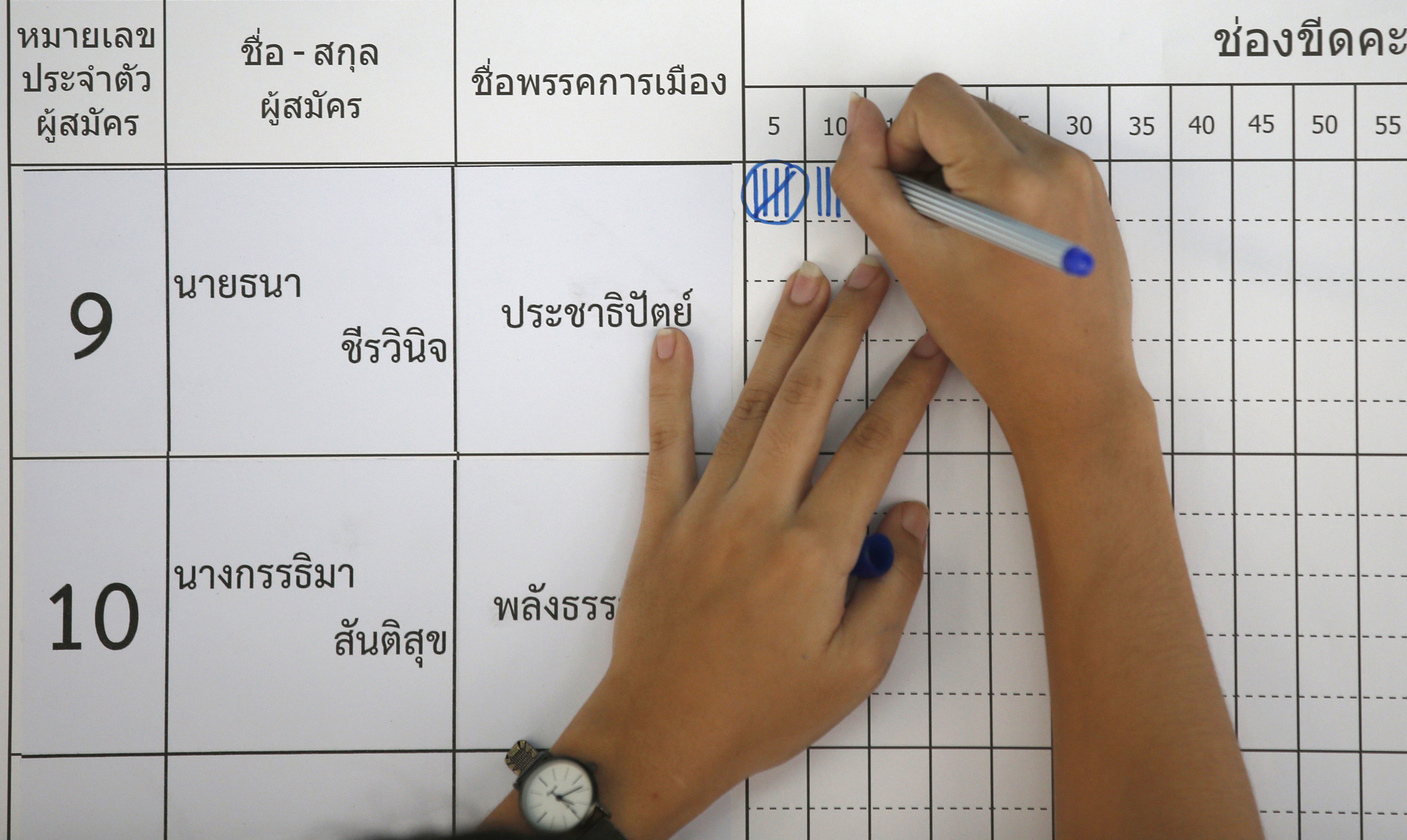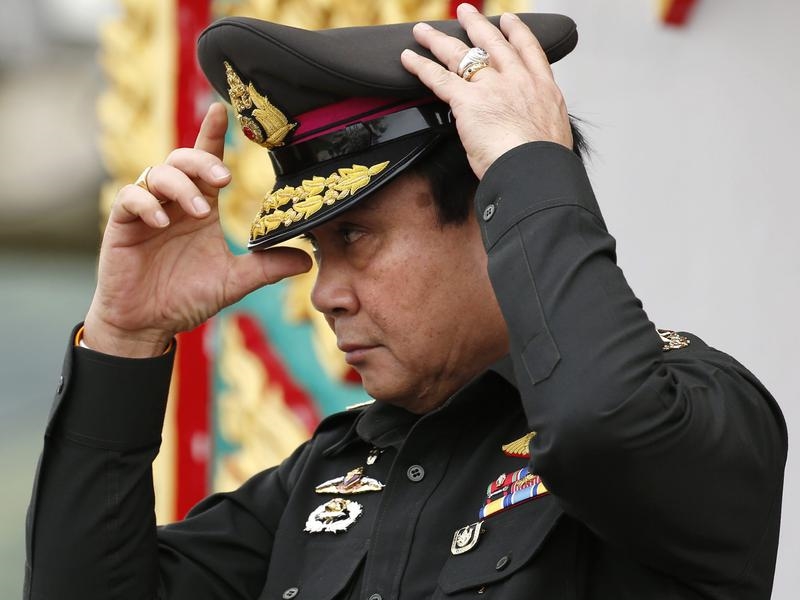Thai Prime Minister Prayuth Chan-ocha has formally resigned as the head of the military government, saying the country would function as a normal democracy after five years of military rule.
Prayuth stays on as prime minister with the backing of pro-military parties in parliament and a military-appointed upper house under a constitution that critics say stifles democracy and enshrines a political role for the military.
Prayuth, in a televised address to the nation on Monday, said military rule had brought success in many areas, from fixing the problem of illegal fishing and human trafficking, to the rescue of 12 boys and their soccer coach trapped in a flooded cave last year.

A Thai election officer marks vote count as counting commenced at a polling station in Bangkok earlier this year. Source: AP
The former army chief, who seized power in a 2014 coup, said the intervention then had been necessary to restore order after six months of street protests and violent clashes, but things were getting back to normal after a March 24 election.
"Thailand is now fully a democratic country with a constitutional monarchy, with a parliament whose members are elected," Prayuth said.
"All problems will be addressed normally based on a democratic system with no use of special powers," he said, referring to sweeping powers the military government wielded.
Last week, Prayuth used those powers for one last time to end various restrictions on media. He also transferred civilian legal cases from military to civilian court though he retained the power to let security forces carry out searches and make arrests unchallenged.

Prayuth Chan-ocha headed the military junta. Source: AAP
King Maha Vajiralongkorn last week endorsed Prayuth's new civilian cabinet, drawn from a 19-party coalition government that holds a slim majority in parliament.
The new government will officially take power after a swearing in ceremony on Tuesday. It is due to present its policies to parliament next week.


